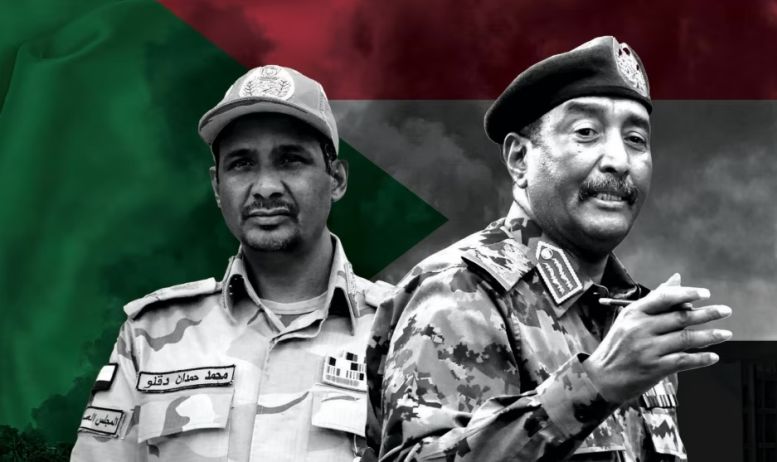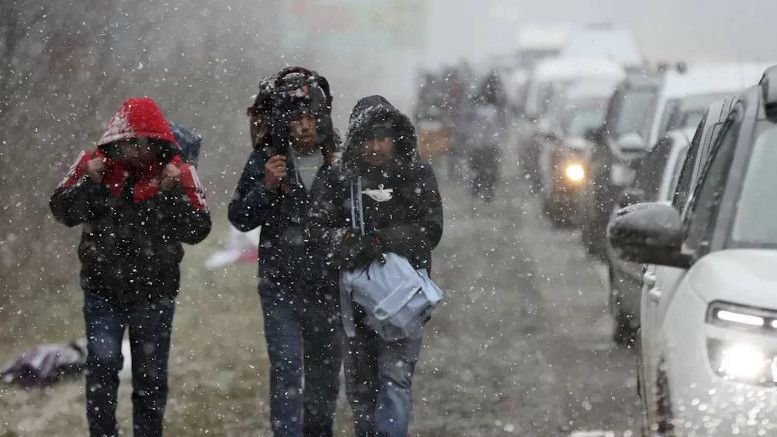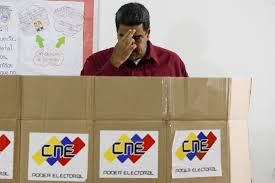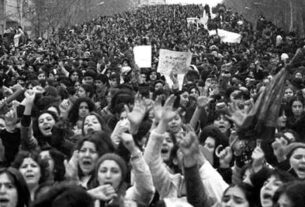Serge Jordan is a member of International Socialist Alternative.
Deadly fighting has raged into its third month between the Rapid Support Forces militia (RSF) and the Sudanese army. These battles have ravaged the country, with the capital Khartoum and the Darfur region in the West bearing the brunt of the violence. Numerous ceasefires have been announced only to be quickly violated.
The war has triggered a huge humanitarian crisis, resulting in the displacement of over 2.5 million people within Sudan, and more than 500,000 fleeing to neighbouring countries. More than 200,000 of those have entered Egypt. Compounding the nightmare, the Egyptian state authorities recently announced tougher entry requirements for those Sudanese who had previously been exempted from visas: women of all ages, children under 16, and anyone over 50.
Upwards of 2,000 civilians have been killed in Sudan since mid-April, although this is likely to be a severe underestimate. According to the United Nations, 25 million people —more than half the country’s population— are now short of food, medicines and water. There are widespread reports of looting too. Militiamen are robbing people at gunpoint and forcing residents out of their homes. Aid convoys and warehouses have been ransacked.
The destruction of infrastructure, including health facilities, electricity and water supply systems, has acutely exacerbated the suffering of working people, poor farmers and marginalized communities, leaving them vulnerable to epidemics and environmental risks —on top of the pre-existing economic devastation and the atrocities unleashed by the warring factions. According to Sudan’s Doctor’s Trade Union, at least 70% of hospitals in combat zones are no longer functioning.
The opening of the rainy season this month further aggravates the crisis, making some areas less easy to access while increasing the danger of diseases such as malaria, cholera, and water-borne illnesses. Since Khartoum has become an open battlefield, large concentrations of people have been pushed into high-flood risk regions like White Nile, North Kordofan, and Al Jazirah, setting the scene for new disasters.
The war has also pushed many farmers out of their land, cut access to credit and destroyed seed stocks, compromising the sowing season. In a country relying heavily on domestic agriculture for its income and the feeding of its population, this will damage the livelihoods of many, worsen the already crippling food shortages, and drive prices further up.
Civil war?
References to an “all-out civil war” have been made in some mainstream media. This misrepresents the current dynamic on the ground, because the vast majority of the population is caught between the hammer of the Generals and the anvil of the RSF. The latter, led by warlord Mohamed Hamdan Dagalo (“Hemedti”), and the former, commanded by General Abdel Fattah al-Burhan, represent two competing poles of the corrupt elites vying for control over economic resources and state power.
Former allies in their attempt to crush the Sudanese revolution, having staged a joint military coup in October 2021, they have now turned adversaries. This, however, has not stopped them from continuously targeting activists who have been at the forefront of the revolutionary struggles of the past years. Hundreds of them have been detained in recent weeks by both the Sudanese Armed Forces and the RSF, attesting to the ongoing efforts of these reactionary armed factions to seek retribution against the revolution and quash any semblance of resistance coming from below, as the conflict rages on.
New wave of violence in Darfur
The western region of Darfur has been embroiled in a new wave of terror, with increasing patterns of ethnic cleansing, carried out primarily by the RSF and other associated militias composed of Arab tribesmen, and mostly targeting non-Arab African communities.
Reports indicate that more than 5,000 people could have lost their lives in the state capital El Geneina alone. Mojeeb Elrahman Yagoub, Assistant Commissioner for Refugees in West Darfur, explained that corpses are piling up in the streets and that “entire families have been exterminated and buried in mass graves along the way”. On June 14, the governor of West Darfur state, Khamis Abakar, was himself abducted and murdered hours after he publicly accused the Rapid Support Forces of ethnically-motivated killings.
Thousands are fleeing from West Darfur every day; people arriving in neighbouring Chad report seeing people shot and killed as they desperately attempt to escape. Witness accounts and human rights organizations also highlight increasing incidents of rapes and gender-based violence, particularly sexual violence, and kidnappings targeting women and girls.
This is among the worst violence the region has seen since the genocide that started there in 2003, which left an estimated 300,000 people dead, and served as the main battleground through which the forerunners of the RSF, the Janjaweed, cut their teeth and built their infamous reputation.
The persistent problems of extreme resource scarcity and economic impoverishment have worsened, while the historical pattern of state-driven oppression against non-Arab groups, a lasting legacy of British colonial rule, has remained unchanged. Furthermore, the very individuals responsible for orchestrating the genocide, including Hemedti and al-Burhan themselves, continue to roam freely, and have amassed greater economic and military influence. Consequently, the specter of a fresh wave of mass atrocities looms over this already war-shattered region.
International response
On June 1, the United States slapped sanctions on the two warring generals, blaming both sides for the bloodshed. This is a gesture with little to no effect, only aimed at playing to the gallery. The previous dictatorial regime of Omar al-Bashir was subjected to decades of international sanctions. But it was the Sudanese masses who put an end to that regime through their revolutionary action, not western sanctions.
Since then, the US, like all the main imperialist powers and their diplomats, have sucked up to the violent corrupt gangsters who have now driven Sudan into a new spiral of violence. This was done by encouraging their integration into the new, post-al Bashir power-sharing scheme, then by effectively condoning their military coup through new rounds of talks placing the blood-soaked coup perpetrators at the forefront of the negotiating table.
In fact this approach still prevails. US imperialism, along with the Saudi dictatorship, have been the main sponsors of “peace” talks in Jeddah trying to bring the two war protagonists towards better disposition. The Saudi regime is in this way trying to consolidate its regional position and polish its global image as a peacemaker, whitewashing its chief role in the war that has laid waste to Yemen for years. Sudan is also an important destination for Saudi investments, which the current war threatens to unravel.
A multitude of competing regional and international actors (Russia, the US, China, Israel, the Gulf states, Egypt, Ethiopia, Turkey) have economic, military and geo-strategic fingers in the Sudanese pie. As it stands, their focus primarily lies on de-escalation efforts. While both warring sides lean on different nexuses of foreign allegiances, no outside powers have tried to decisively tip the balance of power in one direction or the other. The immediate driving force behind the war stems thus predominantly from internal factors rather than foreign agendas, although this dynamic could potentially shift as the conflict prolongs or if one side emerges more clearly on top.
However, the build-up to the current situation in Sudan has the role of imperialism written all over it. It is the repeated attempts by the regional ruling elites and the main imperialist powers to preserve the authoritarian order in the region that has empowered the leading reactionary forces now lashing out at each other at the cost of immense suffering for millions, not only in Sudan itself but, potentially, in the wider region too.
On June 19, the UN held an international conference in Geneva to raise “aid pledges” for Sudan. Donors gathered at the conference pledged around $1.5 billion. Separately, the US announced $245 million in humanitarian assistance to Sudan and to the neighbouring countries suffering from the impact of the war. The Danish Refugee Council correctly described those sums as “absolutely shameful” compared to the outpouring of military means to Ukraine. These largely token plasters will not provide any meaningful and durable solution to the massive crisis engulfing the region.
Renewing with the aspirations of the revolution
Both the Army Generals and the RSF have indulged in propaganda campaigns equating their own side to that of the Sudanese people and of their revolution. But the Sudanese workers and poor have nothing to gain from the victory of either side in this war, the conditions for which have matured precisely because their revolutionary struggle was left unfinished. Untrustworthy pro-capitalist and middle-class opposition leaders repeatedly drove it into the wall by seeking an non-existent middle ground between outright military dictatorship and the revolutionary expropriation of the warlords and generals.
Unlike those “leaders”, the masses of the poor and exploited in Sudan saw the struggle for civilian rule and democracy as a pathway to a sincere and radical transformation of their lives, the like of which is only possible by reclaiming and governing the extensive sectors of the country’s economy currently controlled by the warring factions, who exploit them for personal gain and patronage schemes.
The thousands of local Resistance Committees that emerged and developed through the ebbs and flows of the revolutionary process of the last years represent in contrast a more organic and authentic expression of the will of the Sudanese masses for a society ruled by them, away from the violence, arbitrariness and corruption of military rule. In the midst of the ravaging conflict, Resistance Committees have played an important role to protect communities from the bloodshed, provide shelter, inform people on food, water and electricity supplies, assist with evacuations, operate ad hoc medical facilities, etc.
These committees still have the potential to serve as a unifying and reorganizing platform to reaffirm the initial aspirations of the revolution and put an end to the war. To achieve this, it is crucial for them to combine essential humanitarian assistance and the provision of immediate necessities with a comprehensive nationwide plan that systematically encourages working-class and impoverished communities to defend themselves and regain democratic control over their homes, neighbourhoods, jobs, and lives. By embracing a strategy that revitalizes mass mobilization, aimed at dismantling the political and economic dominance of the RSF and military elites, the revolutionary masses can establish their own independent power base through their Resistance Committees.
Ultimately, it is essential to address the exploitative dynamics of capitalism and imperialism that have allowed the wealthy and corrupt generals and warlords to thrive. A bold and compelling social program, focused on improving living standards, eradicating famine, developing infrastructure, generating employment, and providing high-quality public services, should form the core of such efforts. This agenda can be supported by empowering the working class to democratically own, control and plan Sudan’s main economic levers (including gold mines, agribusiness, oil, and finance), and by bringing down the parasitically bloated military budget that feeds off the country’s resources.
A socialist program of this nature would equip revolutionary youth and workers with a tool to undermine the material basis currently enabling those orchestrating the war on both sides to recruit new foot soldiers and to exacerbate the country’s descent into a full-fledged civil war. By forging a path towards a prosperous future for the Sudanese people, it would ignite a renewed sense of determination among the working class and the oppressed throughout the region, encouraging them to embark on a similar transformative journey.




